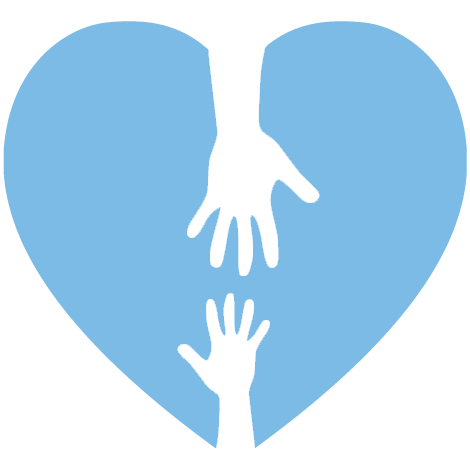How Many U.S. Children Are Affected by Childhood Domestic Violence
Every year in the United States, around 5 million children live in homes where domestic violence is present. These children are not only directly exposed to conflict between caregivers but often bear emotional and psychological consequences that are long‑lasting. This creates a significant and ongoing public health concern.
Key points on scope and impact:
-
Incidence remains high — 1 in 15 children witness domestic violence annually
-
Age matters — younger children are at higher risk of developmental disruption due to high stress
-
Underreported cases — many adults may witness violence but not meet reporting thresholds, making the actual impact much larger
Recognizing the prevalence of CDV in the U.S. helps reframe it from isolated incidents to a systemic issue. Raising awareness provides a foundation for prevention, early intervention, and informed support systems.
Experiencing Domestic Violence in Childhood is All Too Common, but Is Still the Unknown ACE
Reasons CDV Remains Hidden and Unaddressed
Childhood Domestic Violence often goes unnoticed, even by those trained to spot adversity. Despite its widespread impact, it remains one of the least acknowledged forms of early trauma. This silence can delay support and leave many affected individuals struggling to understand the root of their emotional or behavioral patterns.
Common reasons CDV stays hidden:
-
It’s not always seen as abuse
When the violence is between caregivers and not directed at the child, many assume the child isn’t affected. -
Children often don’t talk about it
Fear, confusion, or loyalty to parents can keep kids silent, even in clear distress. -
Adults minimize or normalize it
Caregivers may frame violence as just “fighting” or insist it didn’t impact the child. -
There’s little public awareness
CDV isn’t widely discussed in schools, media, or healthcare—so many people don’t even know the term. -
It hides behind other diagnoses
The long-term effects of CDV often appear as anxiety, depression, behavioral issues, or trouble with relationships—without linking back to its source.
Because it stays invisible, CDV can silently shape a person’s development, relationships, and self-image. Acknowledging its presence is a first step toward better understanding and real support.
The Consequences of Silence for Children and Communities
Adults Engaging in Violence Don’t Want to Talk About It
Brian goes on to explain that the adults who are engaging in the violence don’t talk about it for obvious reasons. There is a lack of discussion among the adults who are partaking in the abuse, as they won’t risk becoming involved with the law. And anyone else who’s aware it may be happening stays silent, either because they believe it isn’t their place and would be out of line.
The Effects of Childhood Adversity Follow Us Into Adulthood
Jeffrey Brenner, M.D., founder of the Camden Coalition of Healthcare Providers, explains that throughout his career, he noticed those who suffered trauma early in life undisputedly showed effects well into their adulthood. To gain a deeper understanding of the larger picture, Dr. Brenner began to discuss his findings comprehensively with his colleagues. No sooner did he say something than he was told, “[…] not to pull up the lid on something you don’t have the time and training to treat, like early life trauma.”
There is no doubt that we as a society are groomed to perpetuate a stigma around speaking openly about childhood domestic violence. Because it may seem like a private issue on the surface and nobody is discussing it, many people feel shame, isolation, or fear. This prevents those impacted from speaking out to seek help to stop the cycle of violence because they feel they’re betraying their families.
How to Start a Conversation About Trauma
Talking about Childhood Domestic Violence can feel difficult, especially when it’s misunderstood or rarely acknowledged. But bringing it into conversation is often the first step toward support, clarity, and recovery for individuals and communities.
Here are some ways to open the discussion:
-
Use accessible language. Instead of leading with clinical terms, try saying: “Some children grow up in homes where their parents fought a lot or where one person was often scared.”
-
Share facts. Mention that over 5 million children in the U.S. live with domestic violence each year. This helps show the issue is common, not rare or shameful.
-
Focus on impact, not blame. Emphasize how CDV affects a child’s stress levels, brain development, and relationships, rather than dwelling on who was at fault.
-
Connect to other known issues. CDV is linked to anxiety, depression, trouble in school, and difficulty trusting others. Relating it to these topics can create a natural bridge.
-
Ask open-ended questions. Invite reflection with prompts like: “Have you ever heard the term Childhood Domestic Violence?” or “Do you think witnessing violence as a child could have lasting effects?”
The goal is not to force disclosure or debate, it’s to make space for understanding. Every time someone hears the term CDV, they’re more likely to recognize it in themselves, in others, or in the systems meant to help. Starting the conversation helps remove the stigma and makes it easier for people to find language for what they’ve lived through.
Tools and Resources to Raise Awareness and Support Families
Sharing Your Story Can Cause the Change We Are Looking For
But it does not have to be this way. How can each of us help change that? Talk about it. This is the first step to increasing awareness, which drives change. Building awareness can have a significant impact not only for the emotional well-being of those impacted and our ability to address the issue more effectively as a society, but also on our medical, court, and legal systems, which can help usher in critical change that can transform the odds for these children.
Those who were impacted can finally realize they’re not alone and can be validated as they work to heal and overcome this legacy, reaching their full potential.

